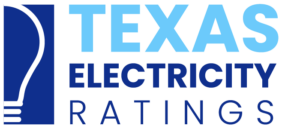
How to Navigate a Tiered Electricity Plan
After another scorching summer in Texas, you might have a had a few shocking surprises on your energy bills. Before switching to a new electricity plan, you need to make sure you look over the details. And if you’re wondering why your Dallas electricity bill is so high, it could be because you misread the Energy Facts Label (EFL) of your tiered energy plan. Here’s what you need to know to make sure you don’t get stuck paying higher rates.
What Is a Tiered Electricity Plan?
Tiered energy plans in Texas are a great way to save if you’re confident that you can stay within the low tier for monthly energy use. There are many kind of tiered plans but basically they break up your energy use into several usage tiers. You’ll pay a set rate for each tier. When you go over that tier’s usage limit, you’ve moved into the next tier. And as a result, you’ll receive another charge for that tier.
In this example, the provider has set up a flat rate for the first two tiers. Anything over 2000 kWh usage and the price per kWh basically doubles.
| Tier | Usage | Price |
| Tier 1 | 0 – 1000 kWh | $109 per billing cycle (10.9 cents/kWh) |
| Tier 2 | 1001 – 2000 kWh | $89 per billing cycle extra |
| Tier 3 | 2001 kWh + | 19.9 cents per kWh |
If you used up to 1000 kWh on this plan, you would pay $109. And if you used more than 1000 kWh, you’d move into Tier 2 and would be charged an additional $89. Now, if you’re able to monitor your use and keep your kWh per month under 1000 kWh, you could get some real savings on your monthly energy bill in Texas.
However, you should be aware that the price goes up at 1001 kWh. So, even going over slightly (using only 1100 kWh in a month, for instance) means paying the additional flat rate for 89 for only 100 kWh more. Now, if your average usage is really around 1100 kWh per month then your energy rate would be much higher than the advertised 10.9 cents per kWh at 1000 kWh. On the other hand, if your usage is 1900 kWh per month, then the price per kWh is less ($109 +$89/1900 kWh = 10.42 cents/kWh). The rate actually drops until it hits 9.9 cents per kWh at 2000 kWh of usage. Of course, once you go over 2001 kWh the price gets very painful.
Any Other Charges With Tiered Energy Plans?
The short answer is that it depends. This is why it’s vital to read your plan’s EFL. Some tiered plans state the standard TDU charges. Other times, it requires closer reading. You may think you’re paying just $80 per month for the first tier of electricity between 0 – 1000 kWh, but then it changes once you factor in the TDU charges for the Oncor service area. Your average rate will go up and so will your overall bill.
Most of the time when customers are unhappy with their energy rates, it’s because they missed something vital on their EFL. So, make sure you take the time to look it over. It’s the best way to make sure a particular electricity plan is right for your home.
How Can I Keep My Monthly Energy Use Low?
If you have a tiered energy plan, then you’ll want to make sure you stay within the right tier. An easy way to do this is to use a smart thermostat. These make it easy to track your energy use in real-time and adjust so that you can make sure you get the cheapest electricity rates in Dallas.
However, another option worth considering is to switch to a plain fixed-rate energy plan. These plans usually offer the cheapest electricity rates. But do keep in mind that they usually require a 12-month or longer commitment.
How Do I Shop a New Electricity Provider in Texas?
With your power to choose, you can compare energy rates and switch to the best provider for your household needs. But it’s not always easy. There are over 100 electricity plans in Dallas alone. For an easy way to shop, compare, and switch to the right provider, visit www.texaselectricityratings.com.
